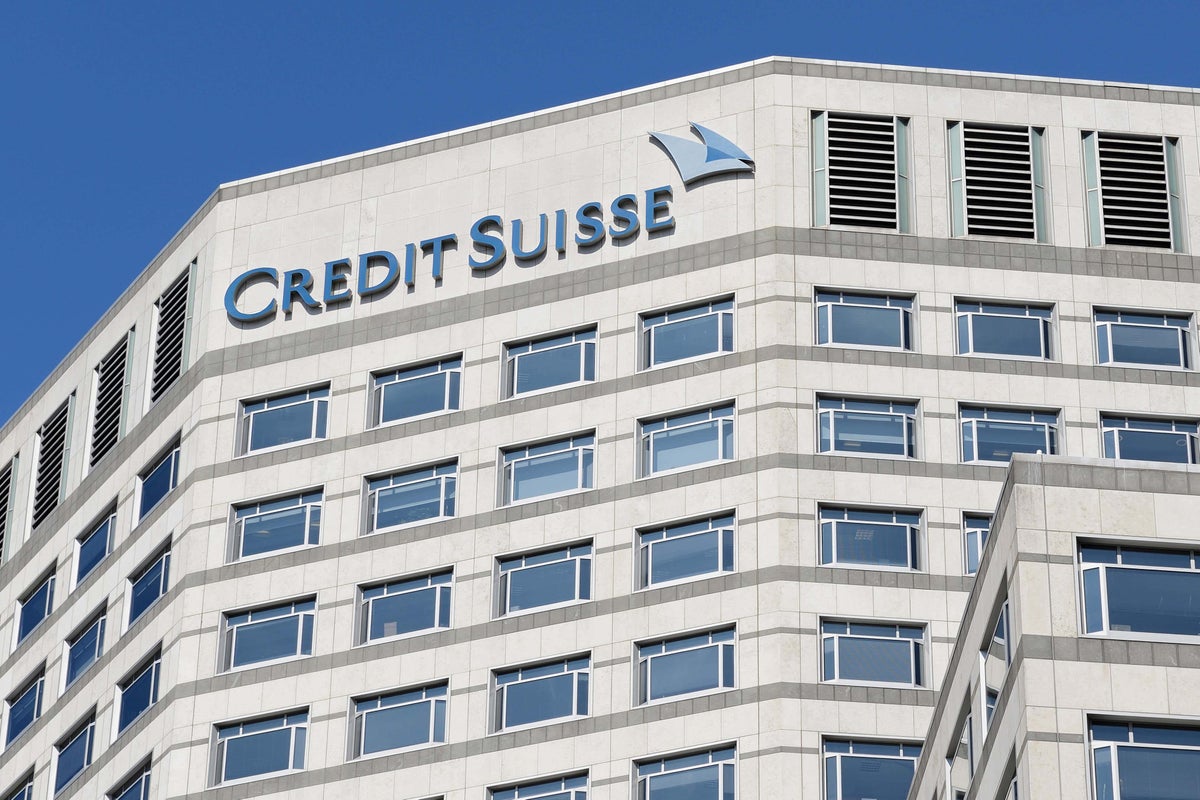
Fears the global economy might be hit by a fresh banking crisis wiped billions of pounds off the value of top firms on Wednesday during growing uncertainty over the future of troubled Credit Suisse.
Jitters spread through global markets as shares in the struggling Swiss lender crashed to a record low, dragging London’s FTSE 100 down 3.8 per cent. It closed at 7,344 points, more than wiping out the gains that the index has made since the beginning of the year. It was a bigger one-day decline than last year’s mini-Budget and the day that Russia launched the full-scale invasion of Ukraine.
The US Treasury said it is monitoring the Credit Suisse situation “and has been in touch with global counterparts” after the firm’s shares were suspended.
The bank recorded a heavy net loss of £6.5bn last year, and on Tuesday it told investors it had found “material weaknesses” in its own financial reporting, meaning it failed to identify certain risks. One of its top investors, Saudi National Bank, said it was unable to put in any more cash.
“If the bank fails, this could have major implications for other European banks that have exposure to the beleaguered Swiss lender,” said Fawad Razaqzada, a market analyst for City Index and Forex. “Concerns over another 2008-style financial crisis have intensified.”
Other markets also reacted nervously – France’s biggest stock exchange also tumbled more than 3 per cent and Germany’s by more than 2.5 per cent, while markets in the US started trading firmly on the backfoot.
Neil Wilson, chief market analyst at Finalto, warned that Credit Suisse is “too big to fail”. Swiss member of parliament Thomas Matter told Reuters he would not be surprised if the Swiss National Bank makes an announcement by Monday morning on Credit Suisse. “The SNB is responsible for price stability as well as financial stability,” he said. “It would provide liquidity against collateral to stop the bank run. People would then have trust again that their money is safe.”
The bank has been seeking to recover from a string of scandals that have undermined the confidence of investors and clients.
Andrew Kenningham, an economist at Capital Economics, said: “The problems in Credit Suisse once more raise the question whether this is the beginning of a global crisis or just another ‘idiosyncratic’ case.
“Credit Suisse was widely seen as the weakest link among Europe’s large banks, but it is not the only bank which has struggled with weak profitability in recent years.”
Moody’s has downgraded its outlook for the whole US banking sector to “negative” from “stable” to reflect the “rapid deterioration in the operating environment.”
As Credit Suisse shares fell 20 per cent to a record low, FT Alphaville contributor Bryce Elder calculated the former giant was now worth less than most firms on the FTSE 100, somewhere in size between Admiral car insurance and Kingfisher, the owner of household chain B&Q.







